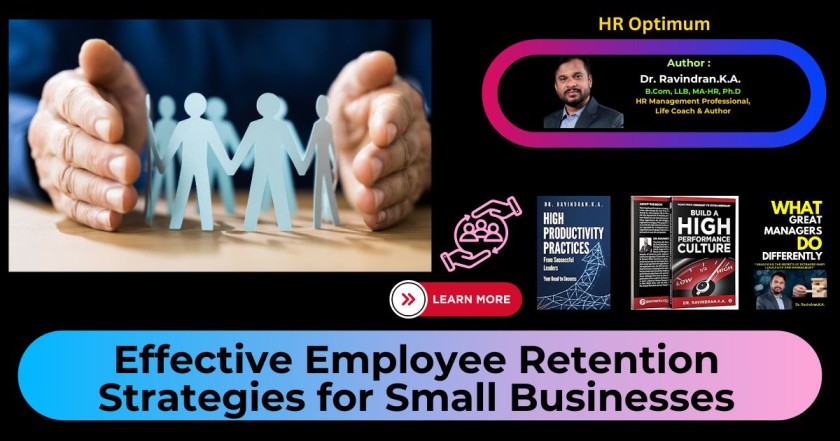Introduction: Strategies for Employee Retention
In today’s competitive job market, retaining top talent has become a critical priority for organizations seeking long-term success. Implementing effective strategies for employee retention is crucial to reduce turnover, maintain a skilled workforce, and foster a positive work environment. This series of articles will explore key strategies for retaining top talent, incorporating industry practices.
Cultivate a Positive Work Culture:

One of the most crucial strategies for employee retention is cultivating a positive work culture. Organizations should foster an environment that encourages open communication, collaboration, and employee well-being. Promoting a culture of appreciation and providing opportunities for personal and professional growth can help employees feel valued and connected to their work. Companies like Google prioritize employee happiness by offering flexible work schedules, on-site amenities, and growth opportunities.
Competitive Compensation and Benefits:

To retain top talent, it is essential to offer competitive compensation packages and attractive benefits. Regular salary reviews should be conducted to ensure employees’ pay aligns with industry standards. Providing benefits such as health insurance, retirement plans, paid time off, and performance-based incentives can significantly contribute to employee satisfaction and retention. Examples include comprehensive benefits packages and stock options offered by companies like Microsoft, Google etc.
Support Career Development and Growth:
Top performers are often motivated by opportunities for career development and growth. Organizations should invest in employee development programs, training initiatives, and mentorship opportunities to help employees acquire new skills and progress in their careers. Offering a clear career path and promoting from within the organization can enhance employee engagement and loyalty. Companies like Amazon and Deloitte provide extensive training programs and leadership development to support employee growth.
Foster Work-Life Balance:

Maintaining a healthy work-life balance is vital for employee well-being and retention. Encouraging flexible work arrangements, promoting time off, and respecting boundaries can help employees achieve a better balance between their personal and professional lives. Companies like Adobe have implemented policies such as flexible working hours, remote work options, and family-friendly initiatives to support work-life integration.
Recognize and Reward Employee Contributions:

Recognizing and rewarding employees for their contributions is a powerful retention strategy. Acknowledging outstanding performance, offering incentives, and providing opportunities for public recognition can boost morale and create a positive work environment. Companies like IBM and Starbucks implement employee recognition programs that celebrate exceptional performance through awards, bonuses, or public appreciation.
Conclusion:
By implementing effective employee retention strategies, organizations can reduce turnover, maintain a skilled workforce, and foster a positive work environment. Cultivating a positive work culture, offering competitive compensation and benefits, supporting career development, fostering work-life balance, and recognizing employee contributions are key components of successful retention strategies. Industry leaders like Google, Microsoft, Amazon, and others provide valuable examples of these strategies in action. Remember, prioritizing employee retention is an investment in the long-term success of your organization.
 Hroptimum Leading to Success
Hroptimum Leading to Success




